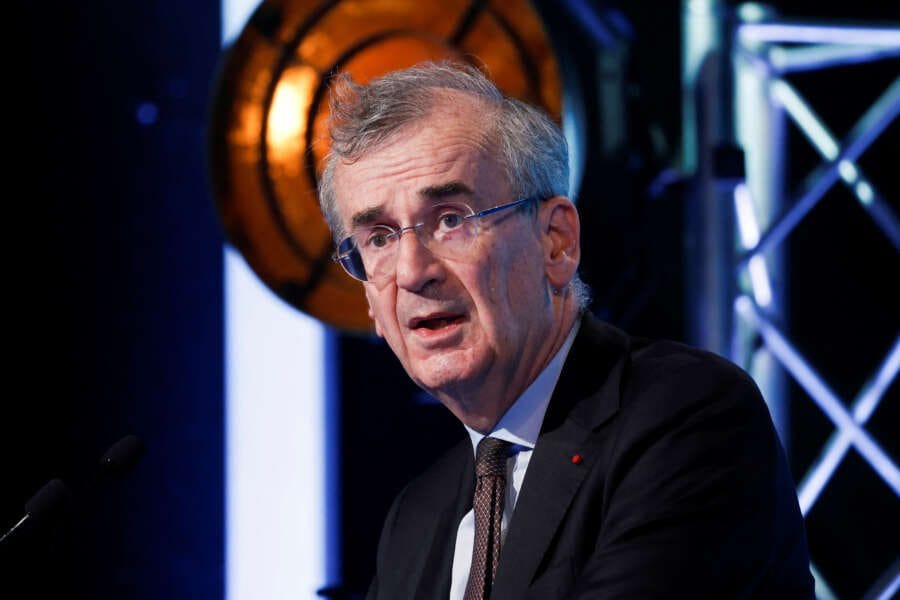
LONDON (Reuters) – France’s central bank governor François Villeroy de Galhau has pushed back against criticism of central banks’ increasing involvement in the fight against climate change, calling the issue a “must have” focus.
“Climate-related risks are clearly among the long-term risks to which financial institutions are exposed: monitoring these risks is not a ‘nice to have’, or part of a CSR (corporate social responsibility) policy, but a ‘must have’,” Villeroy, who also sits on the European Central Bank’s Governing Council, said in a speech at the City Week conference in London.
On some of the recent concerns voiced by a number of top central bankers, he added central bankers shouldn’t waste too much time on the legal and political debate about central bank mandates.
“Central banks’ core mandate worldwide is price stability, and climate change already affects the level of prices and activity,” Villeroy stressed.
“It’s not mission creep, it’s not a politicisation of our mandate – it is our core business and core duty.”
The debate about how much influence central banks can have in tackling climate issues has become increasingly divisive this year.
In January, the head of the U.S. Federal Reserve Jerome Powell, said it should “stick to its knitting” as it was “not a climate policymaker and never will be”.
The Fed’s balancing act has become more delicate since the Republicans took control of the House of Representatives, although both Belgian ECB policymaker Pierre Wunsch and former Bank of England chief Mervyn King have also said fighting global warming was primarily the job of governments.
Villeroy, however, who has long been a firm advocate of doing more, urged central banks and others to come up with better models of how climate change is likely to alter economies.
He said recent “pilot stress tests” had been carried out and pointed to a need for shorter-term scenarios with a five-year time horizon because climate change was accelerating.
The Network for Greening the Financial System, which most of the world’s central banks and multilateral lenders such as the International Monetary Fund are members of, would therefore publish a “conceptual framework” at end of this year, he added.
It is also aiming to release short-term climate change scenarios by the end of 2024, which should show more adverse developments, incorporate tougher “shocks” and directly explore the potential impacts of climate change on inflation.
(Reporting by Marc Jones; Editing by Hugh Lawson and Philippa Fletcher)


